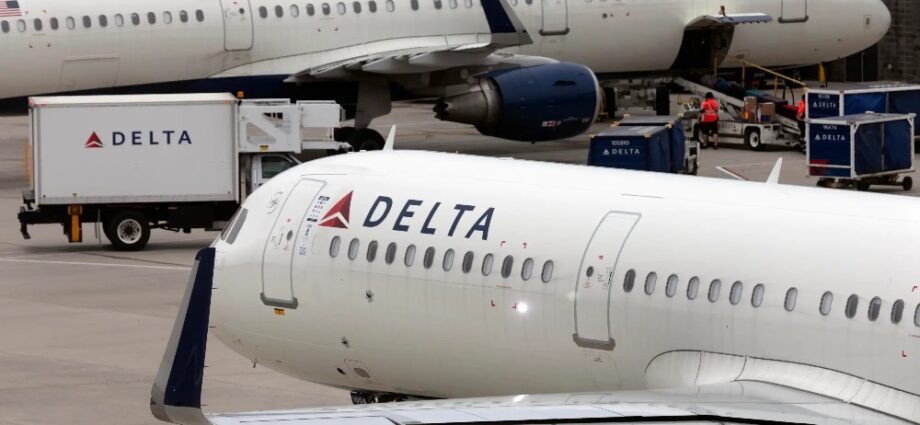Introduction Flight cancellations can be a nightmare for travellers, causing inconvenience, delays, and financial implications. Understanding the ripple effect caused by a single flight cancellation is crucial, especially regarding airlines’ policies like Spirit Airlines’ cancellation policy and Spirit Airlines baggage fees. In this blog, we will delve into the consequences of flight cancellations, explore the chain reaction they trigger, and provide insights on mitigating their effects.
Understanding Flight Cancellations and Their Consequences
Flight cancellations occur when an airline cancels a scheduled flight for reasons such as inclement weather, mechanical issues, or operational constraints. For passengers, this means sudden disruptions to their travel plans, including rescheduling flights, finding accommodation, and rearranging connecting flights. Additionally, flight cancellations can lead to financial losses, as travellers may incur extra expenses or miss out on non-refundable bookings.
The Ripple Effect Explained
A single flight cancellation can set off a chain reaction that affects subsequent flights within an airline’s schedule. When a flight is cancelled, it can create a backlog of passengers waiting to be accommodated on alternative flights. This can lead to delays and disruptions for these passengers and subsequently affect the punctuality and availability of later flights. Moreover, if the cancelled flight is part of a traveller’s connecting itinerary, it can result in missed connections and further delays, causing a ripple effect throughout the journey.
Spirit Airlines Cancellation Policy and Baggage Fees
Spirit Airlines, known for its budget-friendly options, has specific policies regarding flight cancellations and baggage fees. The airline’s cancellation policy allows passengers to modify or cancel their bookings, subject to particular terms and conditions. Depending on the fare type, passengers may be eligible for a refund or credit for future travel. It is vital to review Spirit Airlines’ cancellation policy before booking to understand the options available.
Regarding baggage fees, Spirit Airlines operates on a “Bare Fare” model where passengers pay for optional extras such as carry-on and checked baggage. Baggage fees vary based on route, travel dates, and whether the fees are paid online or at the airport. Familiarising yourself with Spirit Airlines’ baggage policies and planning accordingly can help avoid surprises or additional costs.
Mitigating the Effects of Flight Cancellations
While flight cancellations are beyond travellers’ control, there are proactive steps one can take to minimise their impact. Consider purchasing travel insurance that covers trip disruptions, including flight cancellations. Opt for flexible tickets that offer more options for changes or cancellations. When booking, research and choose reliable airlines with a good track record for on-time departures and minimal cancellations. Stay in communication with the airline, and if faced with a cancellation, explore alternative flights or routes promptly. Being prepared and flexible can help mitigate the effects of flight cancellations.
Case Studies and Real-Life Examples
To understand the actual consequences of flight cancellations, let’s delve into some real-life experiences. In one instance, Sarah had her flight cancelled due to severe weather conditions. As a result, she missed her connecting flight and had to book a hotel for an unplanned overnight stay. Her entire travel itinerary was disrupted, causing stress and financial strain. Sarah’s experience highlights the importance of considering potential chain reactions when a flight is cancelled.
Conclusion
Flight cancellations can trigger a chain reaction, causing disruptions and inconveniences for travellers. Understanding the ripple effect helps us better prepare for such situations and make informed decisions. By familiarising ourselves with airline policies, such as Spirit Airlines’ cancellation policy and baggage fees, and taking proactive measures, we can minimise the impact of flight cancellations. Remember to plan, stay flexible, and maintain open communication with the airline to navigate the ripple effect successfully.
FAQs
Q: What happens if my flight gets cancelled?
A: When a flight is cancelled, the airline typically offers alternative flights or a refund, depending on their policies. It’s essential to check with the airline and understand the available options.
Q: Can I get a refund if my flight is cancelled?
A: Refunds for cancelled flights vary depending on the airline and the fare type purchased. Some airlines may offer refunds or credits for future travel, while others may provide alternative flight options.
Q: How can I minimise the impact of flight cancellations?
A: To minimise the impact of flight cancellations, consider purchasing travel insurance, opting for flexible tickets, and choosing reliable airlines. Stay in communication with the airline, explore alternative flights, and plan for potential disruptions.
Q: Are Spirit Airlines’ cancellation policies different from other airlines?
A: Each airline has its own cancellation policies. It’s important to review Spirit Airlines’ specific policies, including their cancellation policy and any associated fees or refund options.
Q: What are Spirit Airlines’ baggage fees?
A: Spirit Airlines operates on a “Bare Fare” model, where passengers pay for optional extras, including carry-on and checked baggage. Baggage fees can vary based on factors such as the route, travel dates, and payment method.

